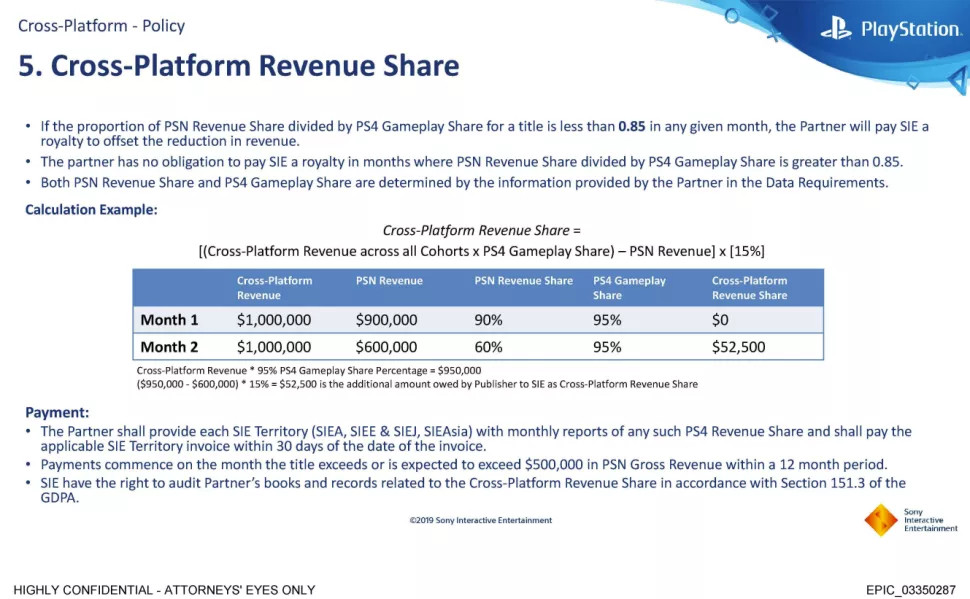One of the holy grails of online gaming is the ability to play with your friends no matter what platform they have. In recent years, this has become a reality across the Xbox, PC, and Switch ecosystem, with many games now supporting what has been dubbed as “cross-play”. One notable holdout though has been Sony. Now, thanks to the lawsuit between Epic Games and Apple, we’re getting some insight into the reasoning behind it.
The battle between Epic and the Jobsian Empire has had one curious side effect: the airing a lot of the gaming industry’s dirty laundry. We already knew that Sony had been highly resistant to implementing cross-play. Back in 2018, the company received backlash from Fortnite players, who could not join games with their friends on other systems. Which is a bit of a problem since Fortnite runs on just about everything under the sun. Epic was able to finally negotiate a deal with Sony Interactive Entertainment, the details of which have come to light as part of the suit.

In order to allow cross-play, Sony devised a “revenue sharing” scheme that charged developers based on how much money the game made, and based on how much of that was earned via non-PlayStation platforms. If a game made less than 85% of its revenue from the PlayStation store, the publisher would would be charged a royalty. This was calculated as revenue across all platforms, multiplied by PSN gameplay share, minus PSN revenue, then multiplied by 15%. So if a game made $1 million, but only made $600,000 of that on PlayStation, the publisher would be charged $52,500, as per the example given by Sony themselves. Developers are required to share to share monthly revenue reports with SIE as part of the deal.
Epic Games CEO Tim Sweeny noted that Sony is the only platform holder to charge royalties for enabling cross-play support. “If somebody were primarily playing on PlayStation, but paying on iPhone then this might trigger compensation,” Sweeney told the court. The slide dates back from 2018, however, the seems to be no indications as to whether Sony have changed their policies since then.
There is an argument here that Sony needs the extra revenue in order to maintain the infrastructure to support cross-play. However, that goes completely out the window when you consider that PlayStation already charges consumers for privilege of playing online. So this stinks as more of a deterrent than anything else.
Sony’s policy harkens back to similar ones Nintendo had through the 80’s and early 90’s, which sought to limit competition. While perhaps not as bad as say, preventing developers from releasing games on competing hardware, it’s certainly not a great look for the company. Especially one who built their entire brand around rebelling against Nintendo’s industry stranglehold. Apparently play does indeed have its limits.
Source: PC Gamer





